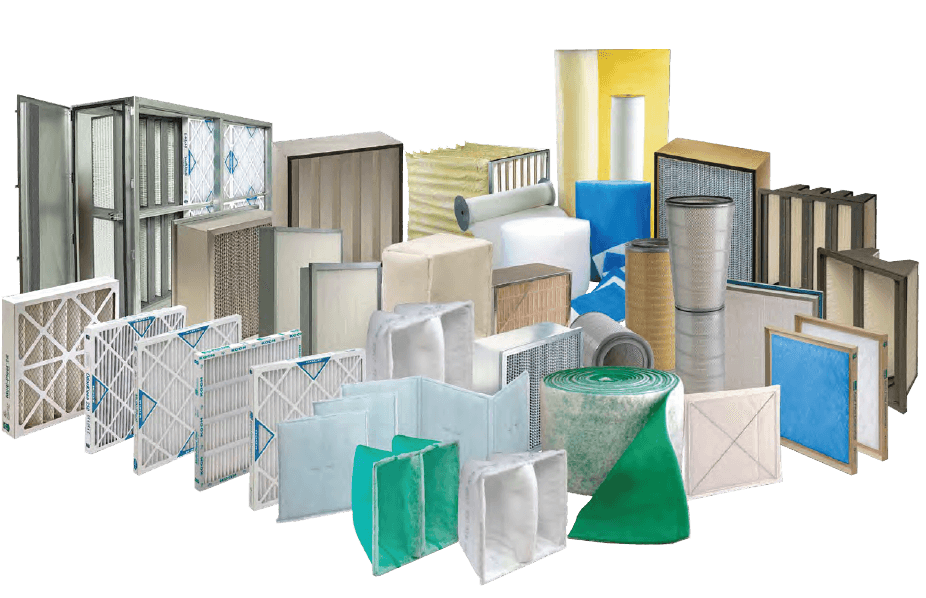
The Hidden Challenges of Ordering HVAC and Chiller Filters Across Industries
Share
The Hidden Challenges of Ordering HVAC and Chiller Filters Across Industries
When it comes to maintaining HVAC systems and chillers, one of the most critical components often overlooked is the timely replacement of filters. Industries as diverse as healthcare, agriculture, education, and manufacturing face unique challenges in ordering and managing these essential components. While it might seem straightforward to replace filters, the reality is far more complex. In this blog, we’ll explore the specific hurdles different industries face and how addressing these issues can improve efficiency, air quality, and operational reliability.
Healthcare Facilities: Balancing Compliance and Performance
Hospitals and medical centers rely heavily on HVAC systems to maintain strict indoor air quality standards. Filters in these environments are responsible for capturing pathogens, particulates, and other harmful contaminants to ensure patient safety.
Challenges:
- Regulatory Compliance: Healthcare facilities must meet stringent air quality regulations, such as those set by the CDC or ASHRAE. Ordering non-compliant filters can result in significant fines or health risks.
- High Replacement Frequency: The need for frequent filter changes due to 24/7 operation strains budgets and supply chains.
- Custom Requirements: Hospitals often require specialized HEPA or ULPA filters, making it difficult to find compatible replacements quickly.
Solutions:
Partnering with suppliers who understand healthcare compliance and offer quick delivery of certified filters can help facilities avoid costly downtime and maintain standards.
Schools and Educational Institutions: Budget Constraints and Delays
Schools rely on HVAC systems to ensure a safe and comfortable learning environment. However, managing filter replacements often falls to overburdened maintenance teams operating on tight budgets.
Challenges:
- Budget Limitations: Schools must balance filter quality with cost-effectiveness, often leading to delays in replacements.
- Seasonal Peaks: Increased HVAC use during peak seasons, like summer, exacerbates the strain on filters and ordering schedules.
- Knowledge Gaps: Maintenance staff may not always have the expertise to determine the right filter specifications or replacement frequency.
Solutions:
Offering bulk purchasing discounts and a scheduled replacement program can help schools stretch their budgets while maintaining air quality for students and staff.
Agriculture: Managing Harsh Environments
In agricultural settings like poultry farms and greenhouses, HVAC systems play a vital role in controlling temperature, humidity, and air quality. Filters must withstand high levels of dust, debris, and ammonia.
Challenges:
- Harsh Conditions: Dust, dirt, and airborne particles clog filters faster than in other industries, requiring frequent replacements.
- Custom Sizes: Agricultural operations often use customized HVAC systems, making it difficult to find off-the-shelf filter replacements.
- Logistical Hurdles: Remote locations make shipping and timely replacements challenging, risking disruptions to critical operations.
Solutions:
Partnering with suppliers offering durable, high-capacity filters and reliable delivery to remote locations can mitigate these challenges.
Manufacturing and Industrial Plants: Downtime Risks
Manufacturing plants rely on HVAC and chiller systems to maintain operational efficiency and worker safety. These systems often face extreme demands due to large-scale operations and harsh environments.
Challenges:
- High Particle Loads: Filters are exposed to heavy dust, chemicals, and particulates, reducing their lifespan significantly.
- Critical Downtime: Delayed filter replacements can lead to system inefficiencies, production delays, or equipment failures.
- Compatibility Issues: Older or specialized systems can make finding replacement filters difficult, leading to costly retrofits.
Solutions:
Offering a diverse inventory of industrial-grade filters and emergency shipping options can help prevent downtime and production losses.
Food Processing Facilities: Safety and Cleanliness Standards
Food processing facilities depend on HVAC systems to maintain temperature and air quality while meeting stringent cleanliness standards. Filters in these settings are critical for preventing contamination.
Challenges:
- Stringent Standards: Filters must meet specific food-grade certifications to avoid contamination and regulatory violations.
- Frequent Replacements: High activity levels and strict hygiene protocols require regular filter changes, driving up costs and logistics needs.
- Specialized Filters: Facilities often require filters capable of capturing fine particulates and odors, limiting their options.
Solutions:
Providing certified, food-grade filters with high efficiency and odor control capabilities ensures compliance and operational continuity.
Office and Commercial Spaces: Balancing Efficiency and Costs
In office buildings, HVAC systems ensure employee comfort and productivity. While these systems may not face the extreme conditions of industrial plants, they still present challenges.
Challenges:
- Cost-Driven Decisions: Building managers often prioritize upfront savings, risking poor air quality with low-grade filters.
- Missed Replacements: Without dedicated maintenance schedules, filters are frequently overused, reducing system efficiency and air quality.
- Large-Scale Operations: Multi-floor or multi-building facilities increase the complexity of ordering and replacing filters.
Solutions:
Implementing subscription-based replacement services and energy-efficient filter options can help streamline costs and ensure consistent air quality.
How to Address These Challenges Across Industries
To overcome these hurdles, companies specializing in filter replacements should focus on the following strategies:
- Education and Support: Providing detailed guidance on filter specifications, replacement schedules, and regulatory requirements.
- Tailored Solutions: Offering customized filters and bulk purchasing options to meet the unique needs of each industry.
- Convenient Ordering: Building an easy-to-use platform for quick reordering and automated scheduling.
- Reliable Supply Chain: Ensuring a well-stocked inventory and fast delivery to prevent downtime.
- Cost Transparency: Highlighting the long-term savings of proper filter replacements, such as reduced energy use and equipment maintenance.
Final Thoughts Filter replacements might seem like a small part of facility management, but they play a critical role in ensuring efficiency, safety, and air quality across industries. By understanding and addressing the unique challenges faced by different sectors, you can position your business as an indispensable partner in maintaining these essential systems.
